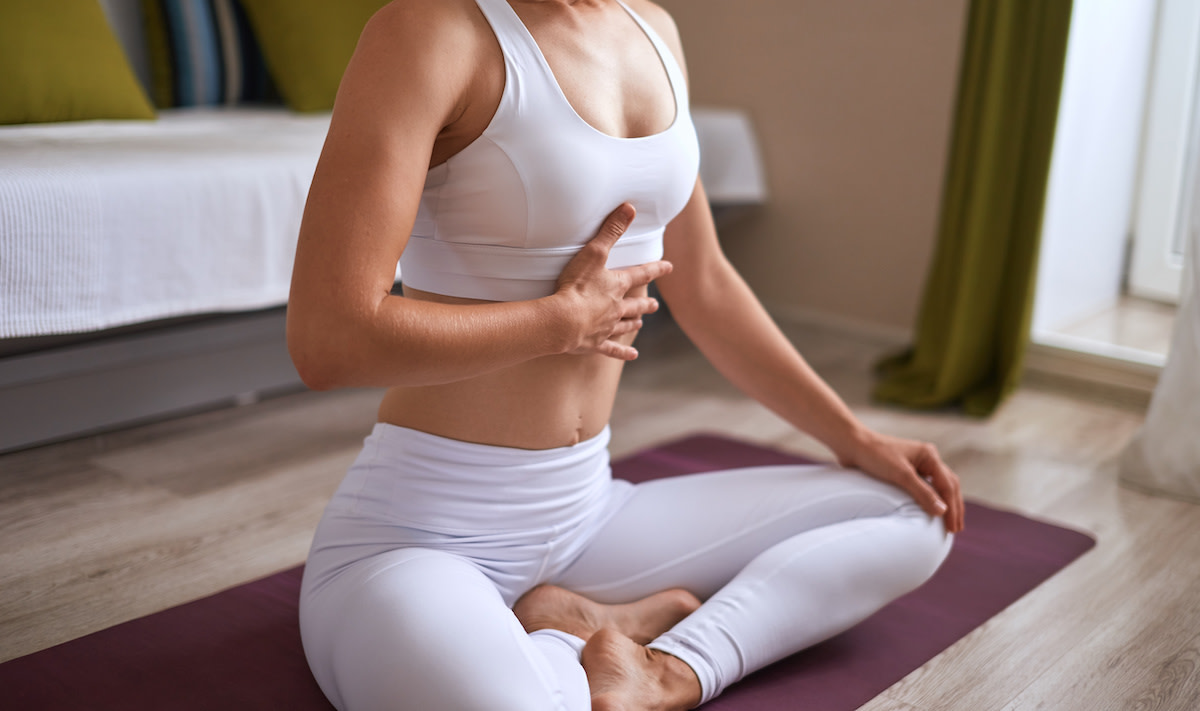How to Practice Box Breathing: Benefits of Deep Breathing
Written by MasterClass
Last updated: Jun 7, 2021 • 3 min read
Box breathing is a valuable mindfulness technique that can help with stress management and overall wellness.
Learn From the Best
What Is Box Breathing?
Box breathing, also known as square breathing or four-square breathing, is a four-part breathing exercise that can restore calmness and wellbeing to the mind and body when under stress. This deep-breathing technique involves inhaling deep into the belly, holding the breath at the top of the inhalation for at least four counts, exhaling, then holding the breath at the bottom of the exhalation for four counts.
Yogis and Indigenous cultures have used this technique as a healing modality for thousands of years. The diaphragmatic breathing technique has roots in Pranayama breathwork, an ancient practice that focuses on extending life force through inhalation, breath retention, and exhalation patterns. The US Navy Seals have recently adopted the technique, which they call tactical breathing, to help soldiers manage highly stressful situations during combat and battle.
What Are the Benefits of Deep Breathing?
Deep breathing is a great tool to have in your self-care toolbox for moments of stress and anxiety. Here are some of the primary benefits of deep breathing:
- Helps deactivate the fight or flight response. The two subsystems of the autonomic nervous system are the sympathetic and parasympathetic nervous systems. When the sympathetic nervous system is activated, the body exhibits a “fight, flight, or freeze” response, in which it readies itself to “fight” for survival, triggering the release of cortisol, a stress hormone, dilating the pupils, and muting pain perception. Sometimes, the body enters this mode without a trigger, which is known as a panic attack. Deep breathing helps our body move into the parasympathetic, or “rest and digest,” mode, which helps calm the body down.
- Ability to stay calm in stressful situations. Deep breathing can help generate a relaxation response rather than a stress response, which can help you make calm, rational decisions when there is external stress.
- Helps stimulate the vagus nerve. Deep breathing stimulates the vagus nerve (the cranial nerve that controls digestion, heart rate, and blood pressure) by sending a signal to your body to relax and calm down.
How to Do Box Breathing
You can practice this mindful breathing technique at any point in your day. To experience the rejuvenating effects of box breathing, follow these steps:
- 1. Sit in a comfortable position. If you are in a place where you can sit comfortably on the floor or on a yoga mat, do so. If not, you can practice this breathing technique while standing up, driving, or walking.
- 2. Relax your body and fully exhale. Prepare to start the breathing technique by expelling any stagnant air in your lungs.
- 3. Inhale through the nose for four counts. As you inhale, fill your belly first and then your chest and throat to a slow count of four. Hold your breath at the top of the inhale for a count of four.
- 4. Exhale through your mouth to a count of four. Slowly open your mouth, exhaling to a count of four through pursed lips or by making a soft “haaaa” sound. Hold at the bottom of your exhale. Suspend your breath at the bottom of your exhalation for a count of four.
- 5. Repeat multiple times. Repeat this box-breathing technique a minimum of 12 times, or more if possible. While you are breathing, imagine each part of the breath as one side of a box. As you complete each step, you are drawing that side of a square. It is complete after the suspension at the bottom of the exhale. Note how you feel after practicing this breathing technique.
Want to Learn Even More About Cultivating a Mindfulness Practice?
Find something comfortable to sit or lie on, grab a MasterClass Annual Membership, and dial into the present moment with Jon Kabat-Zinn, the father of the Western mindfulness movement. From formal meditation exercises to examinations of the science behind mindfulness, Jon will prepare you for the most important practice of them all: life itself.
